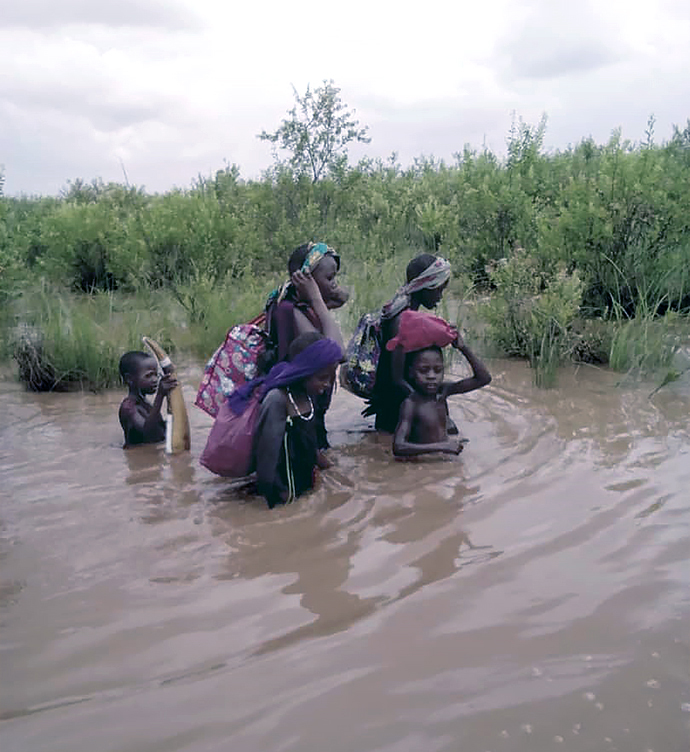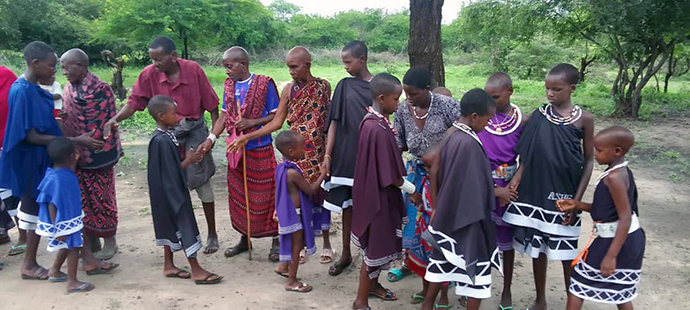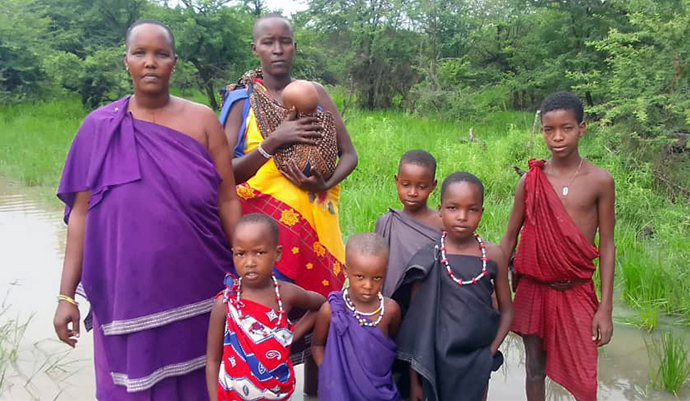
Key Points:
- Flooding in Tanzania's Masai and Morogoro districts affected over 6,300 people, including 300 members of The United Methodist Church. A local United Methodist congregation lost their temporary church.
- The floods, which killed more than 75 people, destroyed homes, livestock and livelihoods, leaving many people homeless and vulnerable.
- The Tanzania Conference is appealing for help to support survivors and continue its mission of evangelizing to the Masai people.
Devastating floods ravaged the Masai and Morogoro districts in the Tanzania Conference, killing 65 people in December and 14 in January. Hundreds are displaced and vulnerable.
Incessant rainfall in the Masai District since December affected over 6,300 people in numerous villages. The communities of Kilosa, Mvumi, Manzese, Ludewa, Msowelo, Ngaiti, Kambala and Dakawa are the hardest hit, with more than 900 people directly impacted.
The downpours wreaked havoc, destroying 173 homes and partially damaging 85 others, leaving hundreds of people homeless. Farms washed away and livestock drowned.
The Rev. Umba Ilunga Kalangwa, a United Methodist Board of Global Ministries missionary working with the conference, reported that one United Methodist had lost everything in his house.
Among the survivors are 300 members of a local United Methodist church, whose temporary building succumbed to the raging waters, leaving them without a place to worship.

Pastor Paulina Koinasai, a United Methodist minister in the district, painted a bleak picture of the situation. “We face many challenges,” she said. “The floods have washed away our livestock, our homes and even our temporary church. We are homeless and have nowhere to worship God.”
People who lost their homes are now living in neighboring houses, said the Rev. Idda John Ngowi, Masai District superintendent. “Their fields are flooded.”
The area is home to some 800,000 Masai, a population of seminomadic herders and warriors from East Africa. Christian churches have been evangelizing to the Masai since the 1980s. The United Methodist Church has been involved in evangelism efforts since 2004.
“In general, most Masai are not Christians,” Koinasai said. “They believe in their traditions and cultures, and many of them are not educated. They live off forestry because they are a herding society.”
In 2004, the Rev. Kalangwa and his wife, Ngoy Mulanga, also a Global Ministries missionary working with the Tanzania Conference, decided to establish a United Methodist congregation in the Morogoro region of Tanzania.
“They began evangelizing in the village of Sangara, but the effort failed the same year,” Ngowi said. “The Masai turned to their traditional practices.”
In 2009, Pendo “Mama Bariki” Simango, a United Methodist, moved to the village of Mkangazi in Morogoro. She and Charles Olesuka decided to start a United Methodist church in the area. They asked Rev. Kalangwa to help them.
Today, that church is growing, and the congregation numbers some 1,460. The church is part of the Masai District overseen by Ngowi.

Despite the growth, Ngowi said, challenges remain.
“Many Masai follow and believe in their culture and traditions,” he said. “Most of them don't know who Jesus is. One to 2% of Masai believe in Jesus. Those who follow Jesus are good believers.”
The loss of the temporary church building in the Masai District and the personal losses of church members have made outreach even more difficult.
Koinasai said she lost her house and her livestock in the recent flooding, and she no longer has a formal place to pray to God. Without a farm, she lives with neighbors.
Subscribe to our
e-newsletter
Testimonies from other survivors echoed the pastor's distress. United Methodist Matayo Daru lost six cows and four goats in the floods, while Esta Mulo mourned the loss of all her means of subsistence: cows, goats, chickens, her house, tools and clothes.
Ngowi made a desperate plea for help. “This flood has plunged our district into great sadness,” he said. “We have done all we can to provide local help, but the scale of the disaster is overwhelming. We urgently need food, shelter, water, sanitation and reconstruction materials.”
He indicated that volunteers from the Natural Disaster Management Office are assessing the damage and needs for possible assistance from the United Methodist Committee on Relief.
Although the Masai District church building is gone, its members remain determined to pursue their mission.
“We must pray a lot and not give up preaching the Gospel to the Masai,” Ngowi said.
Ally is a communicator for the Tanzania Conference.
News media contact: Julie Dwyer at (615) 742-5470 or newsdesk@umnews.org. To read more United Methodist news, subscribe to the free Daily or Weekly Digests.



